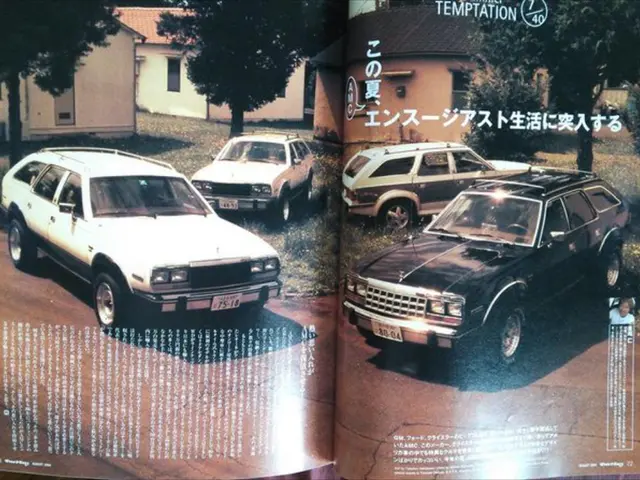China's New Energy Vehicle (NEV) market share in July: BYD leads with 27.8%, Tesla ranks eighth with 4.1%
In the dynamic world of electric vehicles (EVs) in China, July 2025 saw a slight dip in new energy vehicle (NEV) sales, marking a seasonal slowdown after strong demand in June. This trend affected major players like BYD and Tesla, who both experienced a decrease in market share.
FAW-Volkswagen held onto third place in July with sales of 110,882 units and a 6.0 percent share. However, both BYD and Geely outperformed, with Geely ranking second and BYD maintaining its position as China's largest NEV manufacturer.
Geely's retail sales in July reached 202,447 units, representing an impressive year-on-year increase of 112.1 percent and a month-on-month increase of 5.7 percent. This growth pushed Geely's market share up to 11.0 percent.
BYD, on the other hand, saw a decline in July. The company sold 274,644 passenger NEVs, a year-on-year decrease of 11.9 percent and a month-on-month decrease of 22.0 percent. This drop in sales resulted in BYD's market share decreasing from 31.7 percent in June to 27.8 percent in July 2025.
Tesla’s market share also decreased in July due to a sharp drop in retail sales, which fell 12.1 percent year-on-year and nearly 34 percent month-on-month. Tesla’s share dropped from 5.5 percent in June to 4.1 percent in July 2025, slipping from fourth to eighth place in China’s NEV market.
Factors contributing to Tesla’s decline include intense competition from domestic brands, regulatory challenges like China’s data localization laws limiting Tesla’s tech deployment, and decreasing deliveries from Tesla’s Shanghai factory.
BYD's share loss can also be attributed to fierce competition in the plug-in hybrid vehicle (PHEV) segment, where BYD's quarterly PHEV sales fell 12 percent. Other Chinese brands like Li Auto and AITO gained share in this sector. Although BYD’s sub-brands Denza and Fangchengbao saw some segment-specific growth, BYD’s overall core brand sales were down.
In the overall passenger vehicle market in July, BYD led with a 14.9 percent share. Geely held onto the second position. For the first time, hybrid vehicles in China experienced a year-on-year decline.
In the January-July period, BYD maintained its first position in China's NEV market with 1,884,686 retail sales and a 29.2 percent share. Geely ranked second with 807,173 retail sales and a 12.5 percent share. Changan Automobile ranked third with 423,180 NEV sales and a 6.6 percent share.
Despite the challenges faced by BYD and Tesla, it's clear that the Chinese EV market is evolving rapidly. The shift towards other Chinese brands gaining traction suggests a competitive and exciting future for the industry.
[1] [2] [4] [5] - Sources [2] - Li Auto and AITO data [4] - Tesla Shanghai factory data [5] - Previous year's NEV sales data
- The dip in new energy vehicle (NEV) sales in July 2025 reducedBYD and Tesla's market share in the dynamic Chinese EV industry.
- Despite a decrease in sales, BYD remained China's largest NEV manufacturer, while Geely outperformed and ranked second.
- Tesla's market share also decreased in July due to regulatory challenges, competition from domestic brands, and decreasing deliveries from its Shanghai factory.
- In the overall passenger vehicle market in July, BYD led with a 14.9 percent share, while Geely held onto the second position.
- In the first seven months of 2025, BYD maintained its leading position in China's NEV market, with Geely ranking second and Changan Automobile third.







